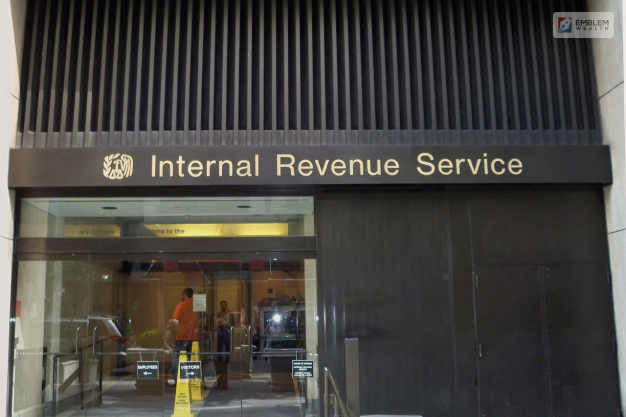Internal Revenue Code – What Is It, And What Does It Cover?

The Internal Revenue Code is also known as the IRS tax code, and this is a law that shares information about the rules of tax operations in the United States. This code is part of the United States Code, which was published in 1925 by the US House of Representatives. In the Internal Revenue Code (IRC), you will get all tax rules related to gifts, income, sales, estate, payroll, and excise taxes.
In this article, you will learn some of the general details about the Internal Revenue Code (IRC) or US Code Title 26. Once you get a general idea of what the IRC is, you will learn the constituents of the IRC. Finally, we will discuss some of the major details about the enforcing body of the Internal Revenue Code, which is the Internal Revenue Service (IRS). Hence, to learn more about this important tax law, read on.
What Is The Internal Revenue Code?
It is Title 26 of the United States Code. According to the IRS.gov website,
“The Constitution gives Congress the power to tax. Congress typically enacts Federal tax law in the Internal Revenue Code of 1986 (IRC). The sections of the IRC can be found in Title 26 of the United States Code (26 USC). An electronic version of the current United States Code is made available to the public by Congress.”
The IRC is basically a law that has 11 subtitles. Some of them include income taxes, employment taxes, group health plan requirements, coal industry health benefits, and more. The body that implements the working of the Internal Revenue Code is the Internal Revenue Service (IRS)
The IRC contains all the governing laws related to the tax administration and collection by the federal government of the United States. While the legal rights and interests are created by the State law, the IRC contains information on what rights and interests the federal government should tax. Furthermore, there is no chance to apply the rules of the IRC retroactively.
Chapter 75 of the IRC consists of the various punishments and penalties that are applied to individuals and entities that violate the laws of the IRC. If someone violates the rules given in the Internal Revenue Code, it is considered a civil offense or a crime. The consideration of the offense changes based on what kind of evasion the taxpayer went through or how much money is involved.
What Are The Major Facets Of The Internal Revenue Code?

According to TimberTax.org,
“The Internal Revenue Code (IRC) is part of the United States Code, which is a codification of all the federal laws of the United States. The elements of the United States Code are organized alphabetically and assigned title numbers. The Internal Revenue Code constitutes Title 26 of the United States Code.”
Since the code is big and heavy, its comprehensiveness can be overwhelming for many. Hence, it is important to narrow down the search if one wants to read the IRC. The following are the categories that fall under the Internal Revenue Code (Title 26 of the US Code):
(a) Income Taxes Rules
(b) Rules related to Estate and Gift Taxes
(c) Employment Taxes rules
(d) Miscellaneous Excise Taxes rules
(e) Rules regarding Alcohol, Tobacco, and Certain Other Excise Taxes
(f) Procedure and Administration to enforce the IRC (for IRS mainly)
(g) The Joint Committee on Taxation
(h) Financing of Presidential Election Campaigns
(i) Trust Fund Code
(j) Coal Industry Health Benefits
(k) Group Health Plan Requirements
Internal Revenue Service – What Does It Do?

The IRS (Internal Revenue Service) is the governing body of the Internal Revenue Code. The body was founded in 1862 and is based in Washington DC. The Internal Revenue Service also has the responsibility to collect taxes. It comes with taxation powers and can also issue various fines and punishments for individuals and entities that violate the Internal Revenue Code.
According to Investopedia, “IRS’s mission is to enforce tax laws and collect federal taxes from all taxpayers in the United States, including individuals and corporations. This is done by collecting and processing annual tax returns from tax filers. The agency aims to help taxpayers understand how federal tax laws work, including those involving gifts, excise taxes, and estates.”
Here are some of the major rules for which the IRS stands by:
- It is mandatory for taxpayers in the US to comply with the tax laws that the US Congress creates and passes.
- The taxpayers must mandatorily understand and meet their tax obligations in the United States.
- The job of the IRS is to help compliant taxpayers and also help non-compliant taxpayers pay their shares of taxes.
The Importance Of Having Internal Revenue Service
The main role of the IRS is to process the return of federal taxes and collect tax revenues from individuals and corporate taxpayers. If the taxpayer owes money (in case the taxpayer paid more than what is required), the IRS issues tax refunds to that particular taxpayer. The US Congress approves the budget on which the IRS runs.
Here are some of the major functions of the IRS:
- They help taxpayers to file their taxes by providing necessary information.
- Individual taxpayers and businesses pay taxes directly to the IRS. It is mostly done through electronic fund transfer.
- The IRS performs audits (every year) to check whether taxpayers pay the taxes they owe to the government.
Final Thoughts
Hope this article was helpful for you to understand what the Internal Revenue Code (IRC) is and what its significance is. You have also learned about the constituents of the IRC and also about the Internal Revenue Service, which is the governing body of the IRC. The IRC provides details about federal tax operations in the US and gives powers to the IRS to collect taxes.
The job of the IRS is to ensure that federal tax is collected, and they also inform taxpayers about their tax filing operations. Do you have any more information to add regarding the Internal Revenue Code? Share your thoughts and views with us in the comments section below.
Continue Reading:

























Leave A Reply